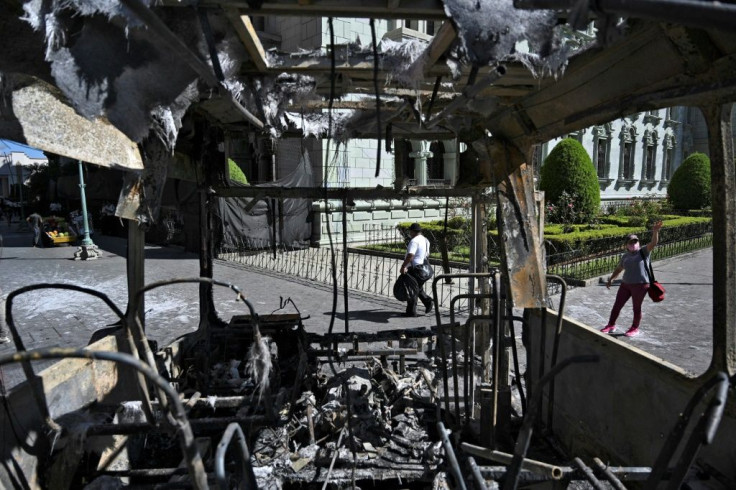Guatemalans Block Roads In Anti-government Protest
Thousands of indigenous Mayans blocked a major highway in western Guatemala on Monday, the latest in a series of protests calling for the resignation of President Alejandro Giammattei.
The ruling party-dominated Congress was forced to withdraw a controversial business-friendly budget last week amid opposition claims it favored private business interests over badly needed health and education funding.
The impoverished Central American country's Congress needed "to act in accordance with the needs of the country," Santiago Cux, one of the leaders of the protest, told a local radio station.
He said Monday's demonstration was supported by 83 communities in Guatemala's western Solola department -- an area with a population of around half a million -- "to let the central government and the deputies know that the actions they have taken lately with the 2021 budget leave much to be desired."
Shopping centers and stores in the departmental capital Solola were shut in solidarity with the protesters, he said. Only pharmacies remained open.
Juan Carlos Aquino, spokesman for the state roads authority, said four sections of the Pan-American Highway had been blocked by indigenous groups, using rocks and heavy vehicles.
Once the blockades were lifted, demonstrations continued in the capital against Giammattei, who has also been criticized for poor management of the Covid-19 pandemic.

On Saturday, a group of masked people set fire to a bus in Guatemala City during an anti-government protest.
Interior Minister Gendri Reyes slammed the attack as "planned and financed by people who are trying to destabilize the institutional order of the country."
Conservative Giammattei, 64, has been in power for less than a year. He was elected in January promising to clean up corruption and fight organized crime.
Opponents of the government said the budget -- at nearly $13 billion, the biggest in the history of the state -- did little to ease the plight of the country's poor, who make up nearly 60 percent of the population of nearly 17 million.
Business leaders, evangelical churches and representatives of the University of San Carlos, the country's only state-run university, have joined government-hosted talks on resolving the crisis.
Guatemalan Nobel Peace Prize laureate Rigoberta Menchu last week criticized the government for failing to include indigenous people in the dialogue.
Indigenous leaders accused Giammattei in an open letter of failing to respond to their petitions for recognition of their rights.
The indigenous population lives mainly in the west of the country and represents 43 percent of Guatemalans.
Rights groups say they suffer discrimination and marginalization, and in some communities poverty rates exceed 80 percent.
© Copyright AFP {{Year}}. All rights reserved.





















